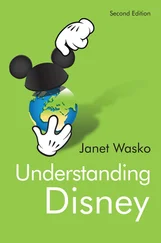A pub which is a real 'local' may hold special evening events. In 2009, probably the most popular is a 'quiz night'. Regular customers form teams of 4 or 5 people and compete to answer quiz questions. Some pubs hold beer tastings, and offer beers brewed in small breweries across England.
Alcohol is therefore seen as a drug which gives a great deal of more-or-less harmless pleasure to millions of people. It is part of social life for the majority of British adults. Moreover some kinds of alcohol can be good for one's health in small amounts, especially in easing heart conditions.
The problem with alcohol is that it is also bad for one's health if taken in excess. It can irreparably damage the liver, it changes people's behaviour so that they become violent and aggressive or stupidly incompetent, and in some case it can be frighteningly addictive. Victims of alcoholism ruin their lives and those of their families by abandoning everything for drink, like those wretched eighteenth-century gin-drinkers. Besides, alcohol makes people poor judges of their own actions. Even half a litre of beer can affect one's ability to drive safely; since people started driving cars, alcohol has caused hundreds of thousands of deaths on the roads, not just of the drinkers themselves but of innocent non-drinking people.
In the 1920s the Americans experimented with 'Prohibition' -banning the consumption of alcohol altogether. The chief effect was to criminalise millions of previously law-abiding citizens as they searched for ways to avoid the law and buy, beg, steal or actually produce the illegal drug themselves. Much the same happened in the mid-1980s when Mikhail Gorbachev introduced near-prohibition into the Soviet Union, although it must be admitted that his law also reduced the death-rate from alcohol. In the twentieth century the British have never banned alcohol; their policy has been to regulate its use through licensing and taxes.
If you want to buy beers, wines and spirits to drink at home, you can only buy them in places with special licences, and only if you are over eighteen years old. In public, alcohol can only be consumed in special licensed premises - pubs, some restaurants, some clubs with limited membership. Drinking in the street can be an offence: some towns in Britain have local laws to stop drinking in streets and parks. Licences cost money and require the licensee to open and close at certain hours. Shop licenses follow similar rules. Alcohol, in Britain as elsewhere, is heavily taxed - it represents an important, indeed, essential part of Government revenue. Every year the Chancellor of the Exchequer (our Finance Minister) announces by how much he is going to raise the tax on different kinds of alcohol, or whether, this year, he is not going to raise taxes at all.
These regulations kept England a relatively sober country until the 1980s. Beer was the national drink, and much less heavily taxed than spirits (per gram of alcohol). In Scotland where whisky was the traditional drink, and where drinking was treated as an evil by many people for religious reasons, the actual consumption of alcohol was much higher. It is easier to get drunk on spirits such as whisky than on beer, and if you have to do it in secret, or stand in uncomfortable pubs which are only open for a few hours, you will tend to swallow down as much as you can in a short time. When the licensing hours in Scotland were extended and beer was encouraged rather than whisky, many Scots began to adopt the English pattern of leisurely sociable drinking over a pleasantly long period. The amount of alcohol consumed actually went down.
Over the last twenty years or so we have became a major wine-drinking country. Millions of bottles of decent wine are sold every day in our supermarkets as well as from many specialist shops. At the same time, licensing laws have become more liberal: pubs can and do stay open longer, while clubs are open all night for entertainment and drinking.
This account suggests that we are civilised drinkers - and most of us are. But as our incomes have increased, the consumption of alcohol has gone up, especially among the young: teenagers and those in their early twenties. Whereas thirty years ago, most people were classified as 'rare or modest drinkers', today those modest drinkers and the generation following them have doubled or trebled their weekly intake. What was once 'heavy drinking' is now 'normal drinking'.
Government advice recommends not more than 28 units of alcohol a week for men, not more than 21 for women. A unit is about 250 centilitres of ordinary beer. The majority of the adult population do not drink as much as that, but a significant minority drink more. (When people tell researchers how much alcohol they have drunk, they typically underestimate by between 50% and 100%. But since samogon is unknown here, researchers can compare how much people say they have drunk with how much is sold in the country - and adjust the figures accordingly!)
Britain has acquired a damaging reputation for heavy and offensive public drinking. Visitors, including Russians, are shocked at student-age young people very obviously and noisily drunk in our town centres on Friday and Saturday nights. The fashion for 'binge drinking', where the aim is to become, once a week or so, absolutely incapable and inebriated in public places, shocks and puzzles many British people too. One reason is that pubs have made it easier to drink too much. As I noted above, the 'old' wineglass contained 125ml. Today most pubs offer two sizes of wineglass: 175ml. and 250ml. So what used to be two drinks has now become one drink - and that does not seem to be very much. A more important reason is that supermarkets now offer very cheap alcohol in order to attract young buyers (sometimes under-age buyers) into their stores. The government is torn between trying to restrict improper use of alcohol and an anxious desire not to seem to be telling people how to run their lives.
For students, university bars are one of the most prominent features of a modern university. They are the hub of social life, which means that much lively enjoyment is associated with drinking; even those who simply do not like alcohol will find that they are spending a lot of time in the bar, sipping orange juice. These non-drinking onlookers may think the bar culture is aggressive and/or distressing. If so, they can take comfort from the fact that excessive youthful drinking is probably declining. In 2009 it seems that our overall alcohol consumption fell for the third or fourth year.
The crime of drink-driving is strongly disapproved of by younger people. Drinking and driving is no longer part of youth (or any) culture. One person in the group does not drink (or does not drink more than one glass, for British law allows you to have up to 80 millilitres of alcohol in your blood and still drive legally) or else everyone walks home or goes home by bus or taxi.
Looking at the behaviour of drinkers, we can easily compare British and Russian habits. While Russians overall drink more, Russian young people, especially students and especially girls, drink less. Few British girls are teetotallers (people who refuse to drink any alcohol) in the way that so many Russian girls are. The reason seems to be partly that British girls have more money, and partly that they do not believe that drinking necessarily leads to overuse. They believe it is possible to enjoy one drink in company without finding that they are drifting downwards into alcoholism. They observe that they can sip slowly, over a long period. Even spirit-drinkers usually mix their vodka and gin with something else non-alcoholic or mildly alcoholic. Whisky is sometimes diluted with water or ice, although brandy is drunk neat (i.e. without dilution.) But whether diluted or not, spirits are never thrown back in a single gulp. Neither is wine, nor beer -except perhaps for the first draught of beer on a hot thirst-making day. Wine, whisky, brandy, gin and various mixed drinks - all are sipped and tasted. The pleasure is in the taste, in the experience of drinking that particular drink. Consequently, the Russian habit of consuming individual gulps of spirit, is considered by the British to be barbarous. Where, they ask, is the pleasurable experience in that habit? What is the point?
Читать дальше












